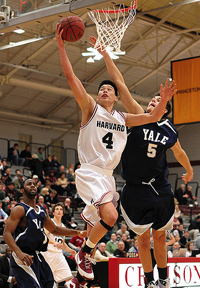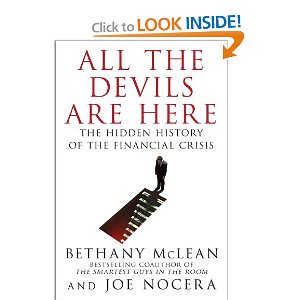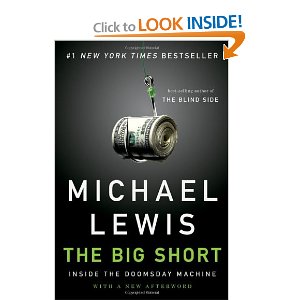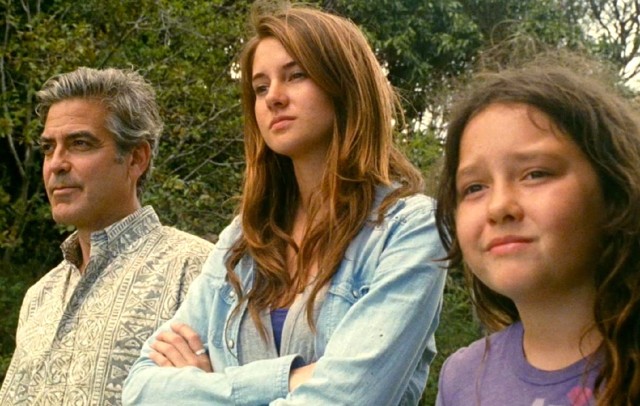 This Sunday I watched the Knicks-Mavericks game, which the Knicks won 104-97. The Jeremy Lin Phenomenon continued—28 pts, 14 assists, 5 steals, 7 turnovers.
This Sunday I watched the Knicks-Mavericks game, which the Knicks won 104-97. The Jeremy Lin Phenomenon continued—28 pts, 14 assists, 5 steals, 7 turnovers.
I have been hating on this guy for two weeks, for no good reason. Maybe I’m a self-hating Asian person. Maybe, after being exposed to Asians playing basketball for almost twenty years I simply can’t reconcile my ingrained notions of how good an Asian person can be at playing basketball with a Taiwanese-American point guard lighting up the NBA. But I’m getting over it.
So I thought I’d dissect his game a little bit. I live in Brooklyn and have Optimum Cable instead of Time Warner, so I’ve seen every game he’s played since the winning streak started. What makes this guy tick?
ATHLETICISM
Lin is 6-3, with a good basketball build—slim in the midsection and legs with long arms, but broad shoulders which can absorb contact and create space.
He is a perfectly average NBA athlete. He is neither freakishly athletic like Derrick Rose or Russell Westbrook, nor is he as gravity-limited as Steve Nash.
For a point guard he actually doesn’t possess very good top-end speed—watch him running down the court on a break and compare it to cheetahs like Westbrook or Ty Lawson, who look like they’re covering end line-to-end line in about two seconds. This puts him at somewhat of a disadvantage, in that defenders can either catch up to him if they’re behind, or have time to prepare for his move when they’re ahead. Lin does possess very good change-of-direction and an excellent first step, which is the key to his game—he has shown the ability, like the best modern point guards, to get into the paint at will.
He isn’t the most balanced or coordinated person, as he tends to trip or fall down a lot when someone interrupts his momentum. This causes some of those really awful-looking turnovers when he gets caught up in traffic and someone ties him up—I’m thinking Chris Paul would be able to recover from the majority of those with his low center of balance. When it happens to Lin it’s usually a layup coming the other way.
GRADE: B (Gold standard: Russell Westbrook, A+)
HANDLE
Well, if you’re a point guard you have to basically excel at ball-handling or you’re dead in the water (Lindsey Hunter, anyone?). Lin’s handle is good in that he can shift to a very low dribble and keep it away from long-armed defenders. He also has that crucial sixth sense about where the defensive help is coming when he gets in the paint, which lets him do something very important which I’ll get to in the Scoring section. But he has a tendency to expose the ball in traffic, and also a bad habit of giving up his dribble halfway to the basket.
There was a lot of hubbub about how he could only go right, but I think that’s overblown. Sure, he likes to go to his dominant hand, as most players do. And he does seem much more confident finishing with his right hand on the right side of the basket. But he can go left.
GRADE: B+ (Gold standard: Chris Paul, A+)
SHOOTING
I thought he was a bad shooter initially, but I’ve come around. He is pretty good. When he gets his feet set he is an above-average three-point shooter. His pull-up off the dribble is effective, but weird-looking, and it’s not quite as good as the elite point guards like Paul, Nash, and Deron Williams. Those guys can stop on a dime and pull up for a perfectly squared jumper anywhere on the floor. Lin takes a split second longer to set his feet—when he tries to stop too quickly he can’t square himself, and ends up taking an ugly shot.
GRADE: B (Gold standard: Steve Nash A+, Deron Williams A)
PASSING
Lin was never a pure point guard at any stage of his career. In high school he was sort of a jack-of-all-trades combo guard, averaging 7.1 assists as a senior, and he played off-guard at Harvard, never averaging more than 4.5 assists a game.
Which makes it all the more surprising that he’s such a sweet passer. He has full vision of the court and the right point sensibility for a point guard, constantly looking up court to find someone who’s broken open. He has that passing intuition which lets him deliver the ball a split-second earlier than most players do, allowing his teammates open lanes to the basket. And he puts the ball right on the money—some of those lobs he’s been throwing to Tyson Chandler and Landry Fields are fit in truly tiny windows between defenders’ outstretched arms and Chandler and Fields’ absolute limits as leapers.
He gets in trouble sometimes because he often barrels into the paint looking to score, but changes his mind at the last second. He’ll often get caught in the air trying to deliver an impossible pass, or take an awkward and difficult shot. This is something he can probably learn, though.
His passing is spot-on but not that creative—he doesn’t have the flair for making fancy things work like Nash or Ricky Rubio. If he did have that flair he could complete some of the more high-degree-of-difficulty passes in the paint (like wrap-around and behind-the-back). Those things are generally discouraged by coaches teaching fundamentals, but in the NBA the defenders are so good that sometimes you have to resort to them to complete the pass. (I remember a couple of years ago in the Western Conference Finals, in a crucial Game Five with the score tied, Steve Nash got deep into the paint on the last possession of the game and whipped a no-look behind-the-back pass around Tim Duncan and Robert Horry to Amare Stoudemire for a game-winning layup. To resort to that in such a critical situation seems foolish, but it worked.)
GRADE: B+ (Gold standard: Steve Nash A+)
DRIVING
So this is where Lin, IMO, truly distinguishes himself. He can get into the paint at will—lots of guys who are bigger and more athletic can. But how does a 6-3 Taiwanese-American kid with only average hops keep finishing layups over multiple seven-footers in the NBA?
Point guard scoring in the paint is an art, and everyone has their own distinctive style. For the vast majority of small guards, they try to get their shot off before the help arrives. This either means a 10-foot floater, or a rushed lay-up attempt initiated fifteen feet away from the basket (that was how Lindsey Hunter tried to score when he had a lane. He ended up getting it blocked into the sixth row regardless).
The elite players have more options. Derrick Rose is so explosive and strong that he can actually leap over the help or absorb the contact and finish. Tony Parker has such terrific body control he can drop in a floater at full-speed, or stop, leap into the defender to keep him away, and deliver a beautiful lay-in with his body completely squared.
Lin isn’t at that level, but he’s close. And he does it very differently. His version of the floater is actually super-awkward looking (I can never believe it when it goes in, it looks so bad). I think this is because he only resorts to it when getting deeper paint penetration is totally closed off. He has a strong preference for getting all the way to the basket. But how does he do it?
Lin has a rare ability to make an initial move to beat the initial defender then make a second move to beat the help defender(s). It’s rare because of the Lindsey Hunter Syndrome—most guards don’t have enough control to create options once they get a lane. They’re on a straight line to the basket, and either need to attempt to finish at the rim or make a pass (smart defenders know this and set up to draw a charge or size up the incoming player for a block). Lin can sense the help coming, and he can either change direction on his dribble to beat the help, or set up the timing and direction of his leap so he will end up behind the help defender when he’s making his layup attempt. When he finally does get to the rim he has enough explosion to finish, and he is capable of doing so with either hand.
GRADE: A- (Gold Standard: Parker A+, Rose A+)
DEFENSE
This is hard to gauge. At some level I think opposing point guards are just fed-up with the Linsanity and go in to every Knicks game intending to tear the kid a new one.
The Knicks’ defensive philosophy is either unorthodox, or Lin is just a crappy defender. When screened Lin rarely tries to fight and come over; he often just crashes into the screener and absorbs the contact, taking him out of the play. He also has a weird habit of completely leaving his man and coming to help, sometimes when the help isn’t terribly necessary. He often loses his man off the ball when multiple picks are set, but the Knicks seem to want to switch almost everything, so that might not be his fault.
When put on an island he looks like he can stay in front of his guy, but he becomes a nonfactor in the paint, rarely putting himself in a position to challenge the shot. His best defensive maneuver is to strip the ball when the opposing player makes his move (which he’s pretty good at, averaging over two steals a game).
GRADE: C (Gold Standard: Rajon Rondo A+)
INTANGIBLES
All of the technical stuff aside, after watching Lin play for six games I can definitively say that the single factor most responsible for his success is his confidence. He seems to honestly believe he is the best player on the court when he walks out there, regardless of who he’s playing. This blows my mind—it’s so antithetical to my conception of what an Asian-American point guard from Harvard should be. Lin sounds humble and says all the right things, but he thinks he can ball with the best of them, and he isn’t backing down from anyone. He probably thinks he should have the ball in his hands at the end of the game, whether he’s playing with Bill Walker or Kobe Bryant.
I can’t help but wonder how this will play out on a team which also has, arguably, the NBA’s best individual scorer in Carmelo Anthony. I don’t know how good, in a long-term sense, Lin will turn out to be. He may end up settling down and being a perfectly good, but unspectacular, starting point guard. This D’Antoni team might not get anywhere, and Lin may end up with a coach who can’t handle all of those ugly turnovers, and he could end up being an energizer off the bench. But what if he gets even better? What if it becomes clear that he should have the ball at the end, just like Kobe and Michael and Isaiah did? Some part of me still wants him to settle down, be a team player, and defer to the guys who should be superstars. Asian-American Point Guard Makes Good sounds like a perfectly acceptable headline. Asian American Named NBA Most Valuable Player? I would be speechless.



